Business To Business The Community Way
How do you plant the seed to cultivate your name and grow your business with other businesses in your area? How do you build the inroads so their “green” dollars flow to you for your products and services? Here are some suggestions from three of your colleagues around the United States You can adapt their ideas to make them work for your business.
Oakland Nursery, Inc.
“Contacts and networking are the keys to product sales and growing a business,” said Paul Reiner, president, Oakland Nursery, Inc., Columbus, Ohio.
Years of experience have given Reiner, who was seven years old when he first potted roses for Oakland Nursery, the business his father founded in 1940, confidence to speak definitively. Today, Paul and his brother John head the respected family business, which includes the nursery, three retail garden centers and farm supply stores, and landscape and design services divisions.
Developing networking relationships. “Networking sets the groundwork for everything you do to promote your business. It takes time to nurture and develop relationships. You’re not going to garner respect or business overnight. We have a lot invested and later we reap the rewards,” Reiner explained.
Reiner and his staff have established working relationships with professional organizations, like the North American Association of Nurserymen and the Ohio Builders Association; with academic institutions, including The Ohio State University; and with horticultural institutions, like Chadwick Arboretum and the Franklin Park Conservatory; and with civic and service organizations, like the Rotary and Chamber of Commerce. This involvement “opens many doors to growing the business while at the same time providing service to the community,” Reiner explained.
For example, Reiner works with faculty members in horticulture-related departments, professionals in horticulture and building professions and leaders in civic organizations to bring garden center professionals in touch with their community and the community in touch with them.
Help local schools. Oakland has adopted Oak Park Elementary School as part of the Columbus Adopt-a-School program. Oakland contributes some funding and plant materials to the neighborhood school and has benefited by being allowed to use classrooms for presentations and workshops. When students tour Oakland’s facilities, Reiner said, “It’s an eye opener. These city kids have not seen the agrarian lifestyle. They are amazed and also learn that there’s a vocation here.”
Participate in fundraising. As with many businesses, local institutions request contributions for fundraising and events. Reiner pointed out that many businesses object to this, “but, in effect, contributions to all these organizations really is very, very cheap advertising to a captive audience. Consider a $50 or $100 gift of merchandise or service. The cost to you is one-half that.”
“Target your gift and align the giving to the audience,” Reiner suggested. Look carefully at the organization or institution making the request, he advised. For example, offer free landscape design for an upscale charity event or donate a shade tree to a school. For some fundraisers, organizations purchase plants, such as Easter lilies or poinsettias, from Oakland at a discount and sell them to raise funds.
Work with local builders. All of this keeps Oakland’s name in the forefront and helps build relationships that develop into business with other professionals. One area Oakland has targeted is the building trade. Reiner is enthusiastic about working with builders for special events such as the Parade of Homes. “We go out of our way to help with landscaping. [We] donate houseplants and annuals at a reduced cost and, perhaps, do the installation.”
One real value of this partnership, Reiner said, is that it promotes a long-term relationship, both with the builder and with the homeowner that purchases one of these new homes. He added, “Contractors want value. They want service. So, you have got to give good value and good service.”
Work with new businesses. Service, therefore, is the key to Oakland’s Streetscape and Inter-iorscape division, of which Lynette Higginbotham is director of operations. Higgenbotham said her clients are largely businesses and some individuals that need to make changes in their environment newcomers or established businesses requiring a new look or expanding. Her work includes a lot of networking with other related businesses and trades not competing with the garden center such as furniture and design. It also involves basic pros-pecting and cold calling.
Higgenbotham emphasized that each business and each situation is different. To meet the specific needs of each client or potential client, Higgenbotham said, “I ask a lot of questions. ‘What are you looking for?’ ‘Do you have a budget?’ ‘Are you going out to bid?’ ‘What have you experienced previously?’ ‘What are you looking for now?'”
Service flexibility. Oakland is flexible in its offers, focusing on upscale design consultation, installation and maintenance; leasing or selling custom design containers; and creating atrium enhancements and patio and entryway enrichment for one season or year round.
When the city of Columbus saw that its downtown “needed a lift,” Reiner said, Oakland’s Streetscapes and Interiorscapes division got individual businesses to participate by leasing containers. “Shopping areas must be beautiful and maintained to thrive,” he said. “Look at Chicago. They have taken downtown Chicago and put it on a pedestal, and people from all over say their favorite shopping place is in Chicago.”
Reiner believes there is a trend in urban and suburban redevelopment and growth that offers a lot of viability for independent businesses. Bottom line for Oakland, as expressed both by Reiner and Higgenbotham is this: Know your customers and what they want. Offer options to meet their needs. Nurture them. And grow, grow, grow.
With vision from the top and support to its extensive and experienced staff, Oakland’s commitment to its business customers is clear.
Roger’s Gardens
Not every garden center is large enough, diverse enough or established enough to meet every demand placed on it. Roger’s Gardens in Corona del Mar, Calif., presents another way to meet the needs of business customers and build business and reputation, too.
Roger’s Gardens has established and sustains its reputation for excellence. The business is “about the out-of-the-ordinary plants, including succulents and orchids, that a usual grower [or garden center] cannot provide,” according to Diane Meloy, advertising and marketing manager.
Work with everyone. While the majority of Roger’s Gardens customers are home gardeners, according to Ron Vanderhoff, nursery manager at Roger’s “We do encourage business beyond home gardens. We try to be helpful and don’t say ‘no’ to requests very often. We donate resources, such as plants for school grounds, classrooms and special events. We work with non-profit groups that have a plant-related focus, such as Master Gardeners and the various plant Á societies. We donate plants to raffles, host plant society shows or provide speakers as a kind of outreach. You never know who may be interacting with the many people outside of Roger’s.”
Trade partnerships. Beyond these and other tried and true networking and affiliation strategies, Meloy and Vanderhoff both point to the significance of their active and profitable trades partnerships. This rapidly growing segment of clientele, Vanderhoff said, consists of professionals (“second party” partners), interior and exterior landscapers, contractors, party planners and designers people in the trade who themselves deal directly with local businesses.
“We don’t go directly to restaurants or hotels, but [reach them] indirectly through tradespeople. This does not require Roger’s to provide people, their time and resources. The tradespeople are already out there. You just have to entice them to come your direction.”
Vanderhoff explained that demographics show people don’t have time to do the [horticultural] work they would like done at their homes and businesses. “There may be no shortage of money… but there is a shortage of time. So they hire professionals who work directly with customers and also work with Roger’s Gardens.”
Roger’s Gardens provides a tiered discount to the trades, based on volume of business, but it’s the special services the company offers to assist these professionals serve their clients better that really makes a difference.
One of these services, according to Vanderhoff, is to offer select accounts the opportunity to borrow products, both plant materials and garden accessories, “on memo” to take to a client’s home or business to evaluate before deciding to purchase. The designer helps make the final selection, returns the borrowed products and places the order for the selected merchandise in the colors, sizes and quantities required.
Roger’s Gardens’ trade partners also have access to an onsite meeting space near the retail floor, complete with a conference table, where they can take a client, spread out design plans and look at merchandise options before making a selection. They may reserve the space, but most just show up and are welcomed.
A third “perk” Roger’s Gardens’ partners can enjoy is attendance at special events designed especially for the trades. “We invite them to an evening with wine and cheese and a keynote speaker in the field of art or design just for them,” Vanderhoff explained.
“Roger’s has a lot of credibility and the brand is well recognized. These designers want Roger’s name. Roger’s products are all branded well. Designers are proud to say products are from Roger’s Gardens. They leave Roger’s tags on, so client knows the source of the products. It’s like buying a gift from Tiffany’s. You want that name out there. You are proud of it. The tradespeople are proud of it. And a client is proud to receive it,” Vanderhoff proclaimed.
How far does this reputation go in building business? Meloy proudly reported one example: the “Orange County Great Park” project in Irvine has selected Roger’s Garden to supply its plants. And that makes everybody happy.
La Rosa’s Greenhouses
“We wanted to create a ‘Happy Corner’ instead of a sad one,” said Charlene La Rosa, co-owner, La Rosa’s Greenhouses, Woodstown, N.J.
When Charlene and Carmen La Rosa were looking for a way to point people to their nursery, which was off the beaten path, they found a way to benefit their community and their business at the same time. The La Rosas and their community had been attempting for years to get a traffic light installed at a dangerous intersection where many deaths had occurred.
Turn a negative into a positive. A small (less than one-eighth of an acre) triangular island of land, located at the dangerous intersection, became the solution. The La Rosas approached the then owners, an adjacent business, with their proposal: The La Rosas would create a “Happy Corner” by planting the triangle with autumn mums. The owners agreed, and the first installation took place, including a sign directing folks to La Rosa’s nursery in nearby, but hard-to-find, Sharptown.
The response was immediate and positive. Local newspapers published photographs of the blooming triangle. People telephoned and visited to thank the La Rosas. So the La Rosas planted spring blossoms, then summer flowers. Subsequently, the La Rosas purchased the triangular island and invested in a well to accommodate drip irrigation.
Today, Happy Corner has a traffic signal; motorists passing or stopping for the red light have a beautiful site to enjoy: thousands of tulips in spring, annuals and perennials in summer, autumn mums and lighted Christmas trees, with greetings from the La Rosas. La Rosa reports that the little triangle at Happy Corner has delighted and brought the community together and “brings in business,” as well.
Offer wholesale product to the local gardener. Though La Rosa’s trade is largely wholesale to independent garden centers in the tri-state area of New Jersey, Virginia and Connecticut, the company offers local gardeners the same plants at retail that are grown for the wholesale trade. La Rosa’s also sells plants at wholesale to local businesses and for local projects, like the fundraiser for the National Honor Society induction. Now there’s a literal answer to our question: How do you plant the seed to cultivate your name and grow your business with other businesses in your area? Choose how you will build the pathways to your products and services.






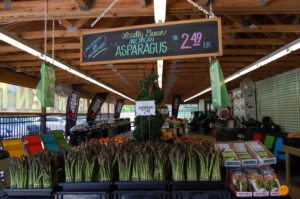
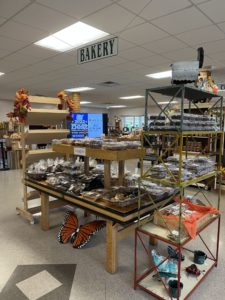
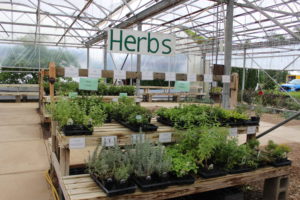

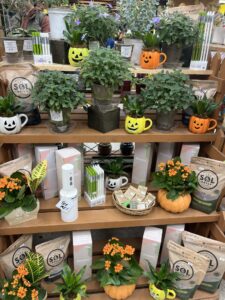
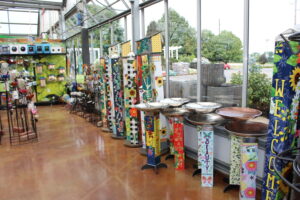
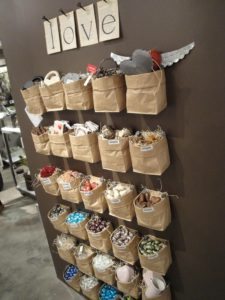

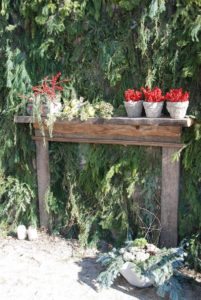
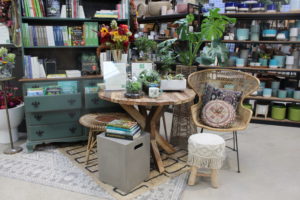
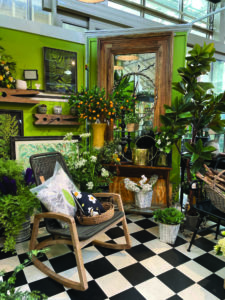
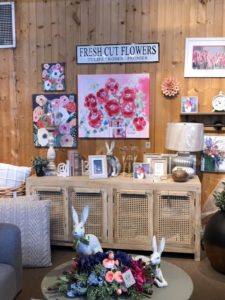
 Videos
Videos





